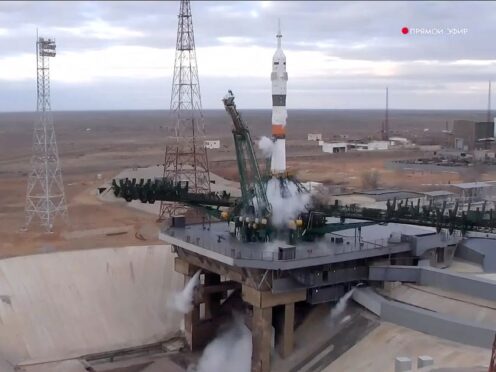
Russia aborted the launch of three astronauts to the International Space Station moments before they were scheduled to lift off but the crew are safe, officials have said.
The Russian Soyuz rocket was to carry Nasa astronaut Tracy Dyson, Oleg Novitsky of Roscosmos and Marina Vasilevskaya of Belarus from the Russian-leased Baikonur launch facility in Kazakhstan.
The launch was aborted by an automatic safety system about 20 seconds before the scheduled lift-off at 1321 GMT.
Today's Soyuz launch was aborted at the 20-second mark. The spacecraft and crew remain safe. Teams at Baikonur will provide updates as they make assessments. pic.twitter.com/xPBtWtDDsh
— NASA (@NASA) March 21, 2024
No cause was immediately given but Nasa said the crew are safe and would be extracted quickly from their Soyuz capsule.
While the crew were not in danger, the aborted launch was a significant mishap for the Russian space programme.
It followed an October 2018 launch failure, when a Soyuz rocket carrying Nasa astronaut Nick Hague and Roscosmos’s Alexei Ovchinin to the International Space Station failed two minutes after their launch, sending their rescue capsule into a steep ride back to a safe landing.

The space station, which has served as a symbol of post-Cold War international co-operation, is now one of the last remaining areas of co-operation between Russia and the West amid tensions over Moscow’s military action in Ukraine.
Nasa and its partners hope to continue operating the orbiting outpost until 2030.

Enjoy the convenience of having The Sunday Post delivered as a digital ePaper straight to your smartphone, tablet or computer.
Subscribe for only £5.49 a month and enjoy all the benefits of the printed paper as a digital replica.
Subscribe